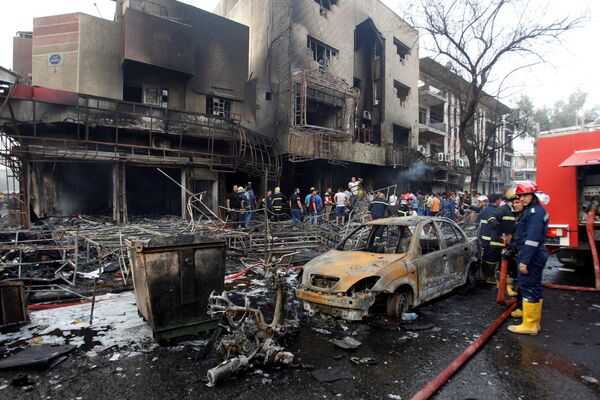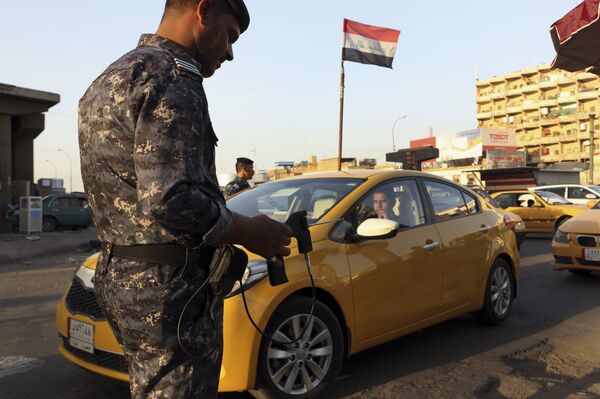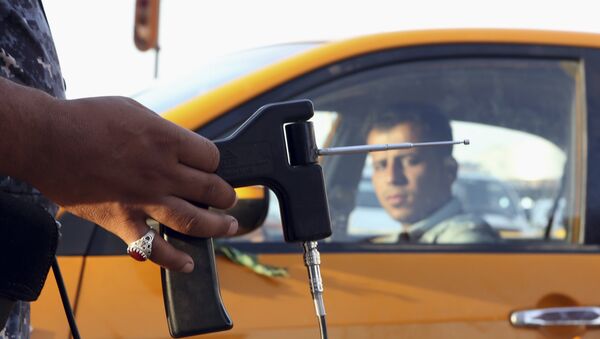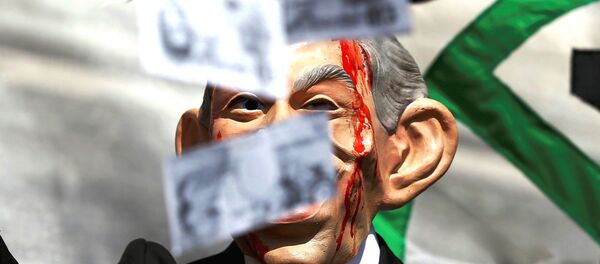The decision was made in light of the July 3 suicide bombing that killed 300 people in the Karadda district of Baghdad during Ramadan. The minibus which struck in Karadda was ladened with explosives which, if the right bomb detecting equipment had been used, could have been prevented from entering Baghdad.

The devices have been dismissed by senior Iraqi officials for the last decade as being fake. This accusation is widely supported by the high number of civilian fatalities caused by explosions throughout Iraq. According to Iraqi Body Count, upward of 40,000 civilians have been killed between 2015 to the present, mostly by bombings carried out by non-state actors.
150 civilians killed #Iraq July 24
— Iraq Body Count (@iraqbodycount) July 25, 2016
The devices, which appear as long metal rods attached to a black handle, were used by soldiers manning the military checkpoints that punctuate roads around Iraq and leading into Baghdad.
Despite the wholesale carnage caused to parts of Iraq by car bombs since the 2003 Anglo-American invasion, the devices have remained in use.
While the decision to remove the device from circulation has been welcomed, frustration over why its usage was not banned sooner — which could have potentially saved thousands of lives — has surfaced. It has long been argued that rampant political corruption has played a major role.

This accusation culminated in 2012 when the head of Iraqi interior Ministry's bomb department, Jihad al-Jabri, was convicted to four years in prison for receiving bribe payments from British manufacturers of the device. British citizen James McCormick was sentenced in the UK to ten years in prison for his part in the scandal after selling approximately US$35,000 (£27,000) worth of the fake devices — reportedly based on a product used to detect lost golf balls — to Iraq.
Unfortunately, the US-trained Iraqi army and security services have proven susceptible to corruption in other ways. Reports have emerged since 2014 that for the right price, individuals are able to bribe Iraqi officials for senior positions in the army without actually filling the post in order to receive the salary.
Other Iraqis have said that the issue has been exacerbated by an ongoing quarrel between Abadi and former Interior Minister Mohamed Salem al-Ghabban.
The latter was demanding that Abadi import effective bomb detonators and relinquish control of Baghdad from the army to the security forces, however Abadi has so far refused. As a result of this quarrel, Ghabban resigned his post, further entrenching the military's position in Baghdad.
While new bomb detecting technology has been introduced, the fraudulent detectors are still in use in some parts of Iraq, such as the holy Shia city of Najaf in the South.
The bogus devices, and the corruption surrounding them, are unfortunately part of the maelstrom of post-2003 Iraq. To remedy these issues, politics and sectarianism must be set aside in the interests of Iraqi security, but whether the war-torn country can manage this remains to be seen.





